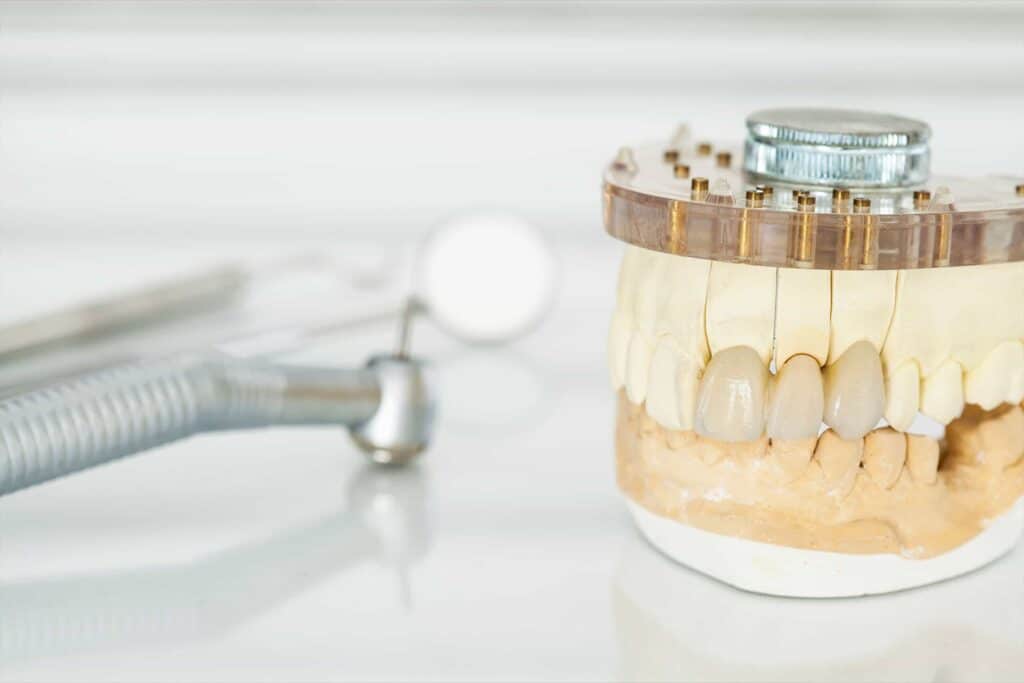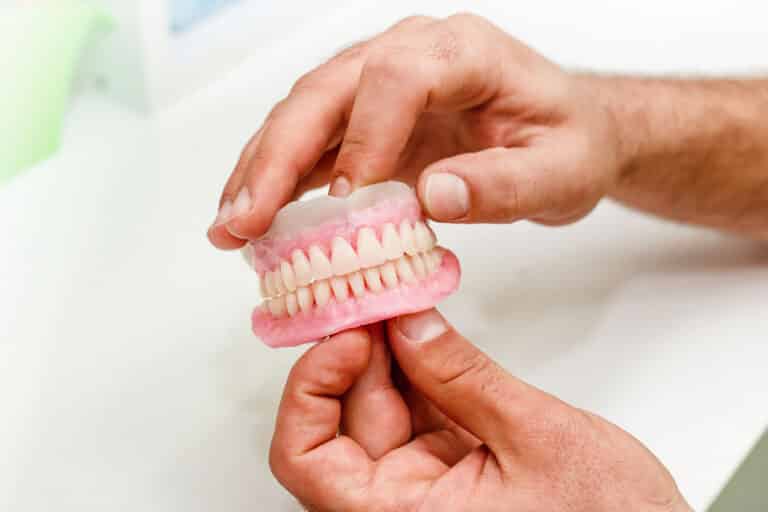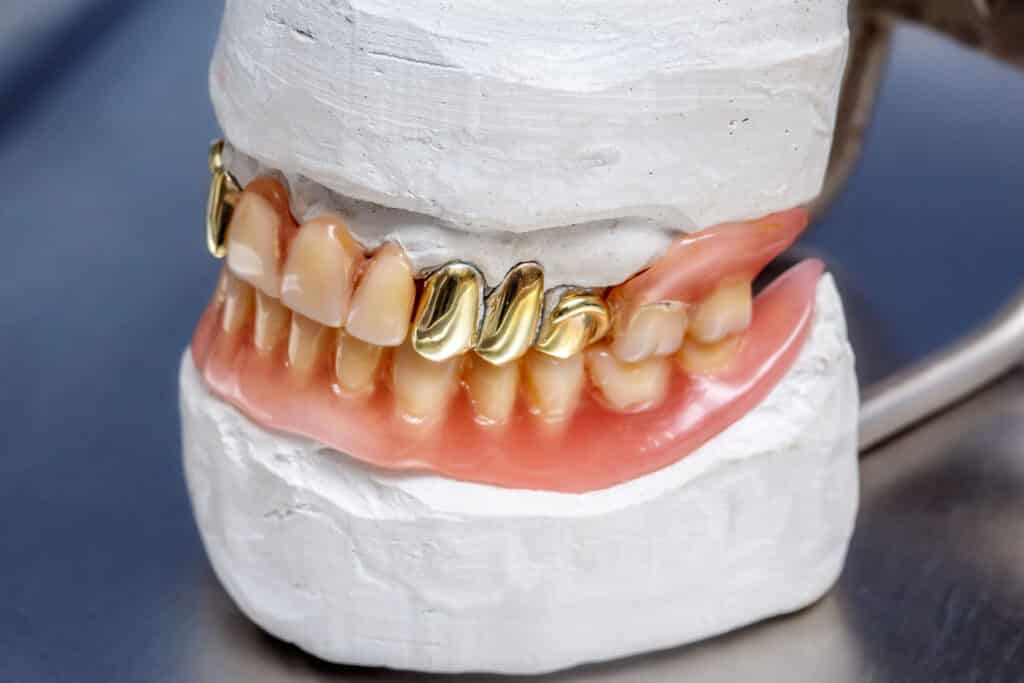Root canals have accrued a reputation over the years for being a painful procedure. However, the combination of local anesthetics and advanced dental techniques makes it possible for patients to feel very little to no pain during a routine root canal.
According to the American Association of Endodontists, a root canal is a dental treatment that can repair and save an infected or badly damaged tooth. Specifically, where the nerve has been affected. Instead of eradicating the tooth, a dental professional will thoroughly clean the canals inside your tooth’s root. Generally, living with a dying or infected tooth is much more painful than receiving a root canal.
What Causes A Root Canal?
Avoiding the need to have a root canal procedure means paying close attention to your dental care routine. A root canal happens when a tooth is seriously infected. In an advanced state of decay, or where the nerve is dead or dying.
To save the tooth, a professional will remove the nerve and surrounding tooth pulp. They will then thoroughly clean and then seal the tooth shut.
Remember, the nerves within your teeth don’t have too much responsibility other than distinguishing between temperature and pain detection. Removing the nerve will not affect your tooth function, so you can continue to keep your own natural tooth.
There are a few significant causes of root canals, including the following.
- Failure to floss and brush regularly or consistently resulting in large cavities
- Trauma, which can kill the nerve
- Advanced decay reaching the nerve
- Long-term gum and periodontal disease
What Happens During a Root Canal?
It’s common for root canals to take two or more appointments. Before officially scheduling your root canal, your dentist will review the process. This will help you feel at ease about your impending procedure.
Your dentist will take a series of x-rays of the affected tooth for a clear picture of the infected area. This will inform as to the extent of the damage or decay. If it is a complicated tooth, sometimes a 3D x-ray is taken to better visualize the nerve chamber.
Applying the Anesthetic
Root canals are done under local anesthetic, numbing your infected tooth and the surrounding gums. Some people go in for a root canal, and the tissue around the tooth has already died. Even though the tooth may be dead, local anesthesia is almost always given, unless the patient chooses against it.
There are some dentists or endodontists who will also perform local anesthesia under various types of dental sedation. This can range anywhere from nitrous oxide (laughing gas) to oral conscious sedation (OCS), or IV sedation.
Once given the local anesthetic, a rubber dam should be placed. Then your dentist will use a handpiece and burs to access the pulp chamber and then remove the affected pulp. When the pulp in the main chamber is gone, it’s time to clean and enlarge the root canal.
Drilling and Filing
This is a long tedious process that involves using tiny files, some of which have a tip that is the size of a human hair. Then they will slowly enlarging it with bigger files. Then the canal is filled and sealed. Filling the root canal can be challenging, as they’re pretty narrow.
The entire process can take more than one visit and up to several hours to complete the job.
Next, your dentist will seal and fix the tooth and, in some cases, add a crown. When a back tooth is root canaled, then it will need a dental crown. If it is a front tooth, it may or may not need a crown. If you feel unsure about the procedure, don’t hesitate to ask your dentist any questions.
Do Root Canals Hurt?
It’s standard for a dentist to perform a root canal with the help of local anesthetics. This means that this procedure will not hurt any more than another dental procedure, such as having wisdom teeth removed. However, root canals can cause soreness in the days following the procedure. Your dentist can tell you how to manage your aftercare.
Many of the horror stories that describe root canals as “the most painful experience” arise from an error during the procedure. For example, the cleaners used during the root canal treatment are very irritating to live tissue. However they are perfectly fine to use inside of a tooth. If the cleaners are expelled out of the tooth into the jaw, it will result in a painful complication. So it’s important that the root canal be done correctly!
When Should I Get A Root Canal?
Take the advice of your dentist when it comes to receiving a root canal. If you visit your dental office for regular checkups, you’re likely on top of the state of your teeth. However, if you don’t see your dentist regularly, and infection or tooth decay begins to take hold, it’s time to see a professional and seek a possible root canal.
Here are a few common symptoms that could lead to a root canal.
- Tooth discoloration
- Persistent tooth pain
- Extreme sensitivity to cold and heat
- Swollen gums
- A cracked or chipped tooth
- Tooth mobility
If your dentist suggests a root canal, you’ll definitely want to take them up on the offer. In conjunction with good oral hygiene, root canals can save your infected or decaying tooth and mitigate the need for future treatment on that particular tooth.
How Much Does A Root Canal Cost?
The cost of a root canal will vary significantly depending on which tooth needs treatment, your dental insurance, your geographic location, as well as which type of provider does the procedure. Generally, a root canal can cost anywhere from $500 to $2,000 without insurance. If you must undergo a root canal procedure, check with your insurance to see what’s covered. If it’s not covered, discuss a potential payment plan with your dentist.
A Root Canal Wrap Up
Root canals are not the painful procedure they are reported to be, and they have the potential to save a tooth affected by decay or infection. Root canals are a common and safe procedure. Your dentist will discuss potential risks with you on your first visit. To reduce your need for a root canal, keep on top of your oral hygiene and routine dental care and do your best to avoid trauma, especially during impact sports. For our readers who want a more in-depth explanation of root canals, we have a more technical root canal explanation available.





